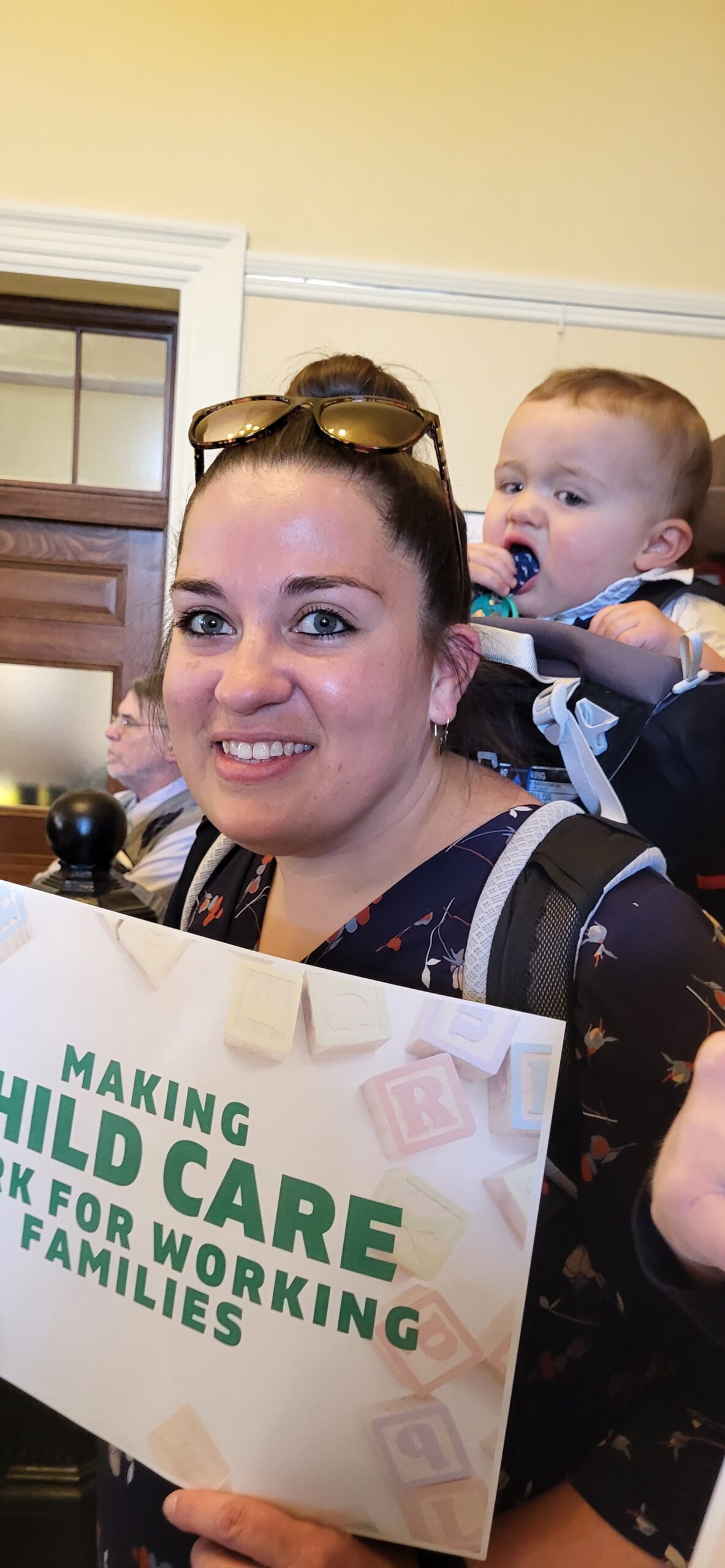
- Child Care
“We’ve tried multiple times to get the kids into a daycare. And it just hasn’t really worked out some of the times when we have found an opening. It either costs too much, or logistically it was too far away that it didn’t make enough sense for it to work.”
– Rebecca and Adam Amidon (MI)
Rebecca and Ryan A. are working parents juggling careers and parenting their two young children. They have encountered obstacles such as the high costs of child care – and limited availability.
Rebecca and Ryan didn’t ask to start their family during a global pandemic. “We both work from home and so that’s kind of how we juggle the child care situation,” said Rebecca. “We’ve tried multiple times to get the kids into a daycare. And it just hasn’t really worked out some of the times when we have found an opening. It either costs too much, or logistically it was too far away that it didn’t make enough sense for it to work.”
Rebecca recalled turning down employment opportunities due to child care struggles, “I had a job two years ago that was part-time and needed to be more full-time. I needed to get my son in daycare, and the only opening was like 45 minutes away. It was over $1,000 a month and that just didn’t make sense.” Now that they have two children, Rebecca works part-time as a college professor and cares for the children during the day, while Ryan works full-time from home and provides child care on the evenings when Rebecca works.
Rebecca said, “We’re very hardworking people. We’ve done everything that society has told us to do. We went to college, we got the degrees, we work. He works full-time plus teaching classes. I’m working part-time while taking care of the kids full-time during the day. We volunteer in our community, we have pulled ourselves up by our bootstraps. We are doing what we’re supposed to be doing. And we are still struggling to give our children the basics of what they deserve.”
The family is “advocating for some type of subsidized child care from the government…in whatever form that that can even look like. Michigan has a great Tri-Share program where the parents pay a third, the government pays a third of the cost and then the employer pays a third of the cost [for child care], but our employers don’t participate. Even something as simple as that could really make a huge impact and making the Child Tax Credit permanent which can help with the medical bills [from] having a baby in a hospital.”
Although Rebecca and Ryan still describe working parenthood as “difficult and busy and exhausting,” they acknowledge “We are in a position where we are able to help advocate for others. [Families] are so busy, they are so consumed right now with either having to look for a village to help raise their kids or they’re struggling to get by financially, and we understand those struggles.”
“We’re in a place where we can share our story and help just advocate for ourselves and for others, because a lot of people don’t understand what’s going on right now.”



